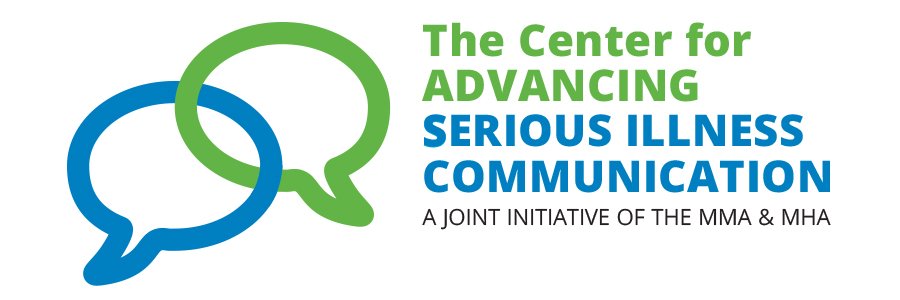The Importance of Serious Illness Communication
In a perfect world, concordance of goals of care between physicians and their patients would be the norm, where every person experiencing serious illness feels known and cared for on their own terms.
The Center for Advancing Serious Illness Communication prepares clinicians and healthcare organizations to engage every patient experiencing a serious illness in meaningful discussions about their diagnosis, prognosis and care choices.
What are the benefits of learning about serious illness communication (SIC)?
Studies have shown that satisfaction improves for patients, their loved ones, and for their caregivers and clinicians when these conversations happen.
Having a serious illness communication program positively impacts patient care and staff wellness.
COVID-19 has added impetus to adopt a different communication style — the need was always there but now healthcare professionals and the general public, alike, are more aware of its importance.
How is serious illness communication different from palliative care?
Serious illness communication is one component of palliative care, which is a special type of care to help patients (and their loved ones) navigate a critical time related to a serious illness diagnosis.
Why is there special training for serious illness communication?
There are not enough palliative care specialists to meet the needs of patients so it is critical that all clinicians have some level of familiarity and comfort with conducting these types of conversations.
There are evidence-based tools and training available to help hone the skills needed to have a meaningful discussion and this Center is here to help.
“At Blue Cross, we are committed to supporting initiatives that can make the relationship between patient and provider even stronger. Our sponsorship of this program underscores how we want to ensure that all Minnesotans with advanced illnesses feel a sense of control and fully understand their treatment options and related choices.”
~ Dana Erickson / President and CEO, Blue Cross and Blue Shield of Minnesota

